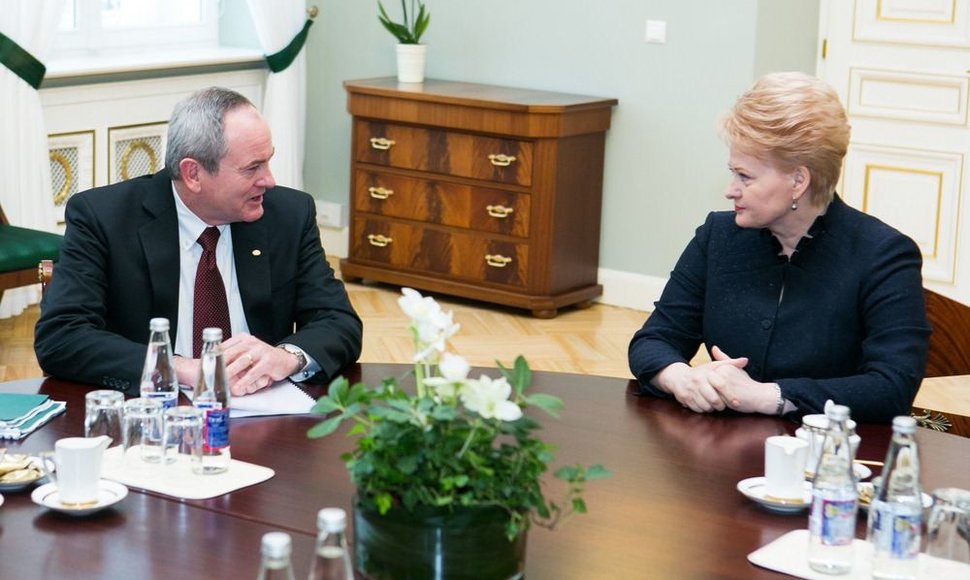“The meeting with the President was very positive and productive. We discussed the matters of the Lithuanian energy sector, spoke about the outlook for oil and gas exploration in the country,” he said.
First of all, Chevron would seek to establish the potential of shale resources in Lithuania, he said.
“Our first step is the assessment of what the resource potential is. At that point we report to the government and we work with the government to determine any future progress,” Johnson said.
Daiva Ulbinaitė, Grybauskaitė’s spokeswoman, said that Chevron would have to comply with all environmental requirements while prospecting for shale gas or oil.
“During the meeting with Chevron’s representatives, the President gave special priority to the compliance with all environmental requirements when prospecting for shale gas as well as to the maintenance of very active dialogue with the local community and provision of as clear and understandable information as possible to the whole population,” Ulbinaitė added.
Johnson admitted that Chevron often came across confusion emerging after the announcement of plans to prospect for shale gas. He pointed out that Chevron complied with all safety requirements when conducting exploration works.
“It’s often times when we first enter the country there is a lot of confusion what the exploration in shale is all about. We work with communities, with the government to educate, to help people understand what’s involved. Then we find there is a much higher level of confidence both in communities, the government, and we can proceed with our program,” Chevron’s representative said.
Chevron has recently submitted the only bid for rights to explore for shale gas and oil in the 1,800-square-kilometer Šilutė-Tauragė field in western Lithuania.
Some local community representatives from the districts of Tauragė and Šilutė fear that the drainage system can be destroyed during tests and that the extraction process can lead to groundwater contamination.
Meanwhile, the parliamentary Committee on Environmental Protection is expected to decide soon on what proposals to make to the government regarding shale gas exploration. Some of its members called for discontinuing the ongoing tender procedure for shale gas exploration rights.
At the same time, the Lithuanian Geological Service claims that any fears are premature now since it is still unclear whether Lithuania has any shale gas reserves.
If Chevron's bid is accepted, the company will have to invest at least 80 million litas (EUR 23.2m) in exploration of the field.
In late October 2012, Chevron Global Energy purchased a 50-percent stake in LL Investicijos, a local company that has an oil field in western Lithuania.
Based on preliminary estimates by geologists, a special working group said last November that Lithuania might have large reserves of shale gas.
According to unconfirmed data, the country could have recoverable shale gas reserves of around 100 billion to 120 billion cubic meters.















